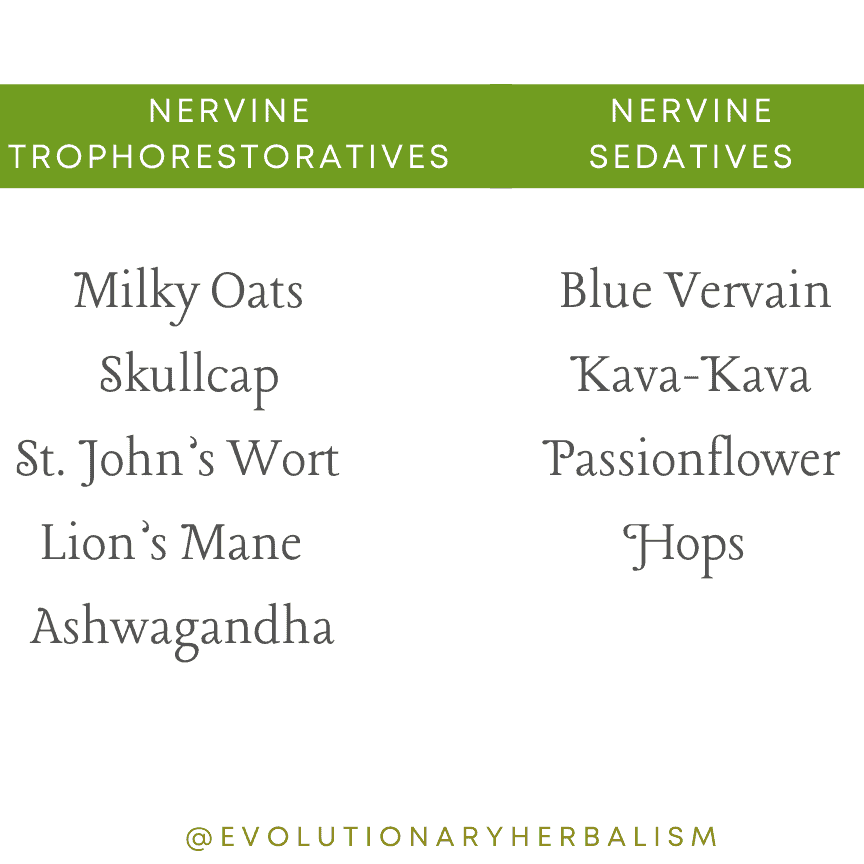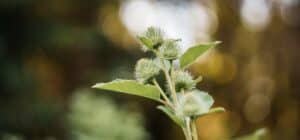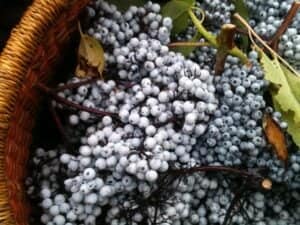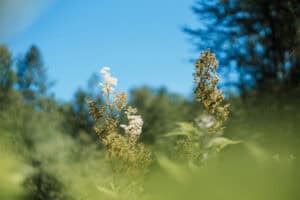In herbalism, frequent irritability is an emotional state associated with the liver and an imbalance of excess heat.
By practicing inquiry, exercising healthy lifestyle habits, and taking herbs that cool, restore, and nourish the nervous system, you can diffuse the pattern of irritability and develop a newfound sense of calm and relaxation in your life.
In today’s blog post, you’ll learn:
- About how the stress response works and its relation to the HPA-axis
- How to use herbs to regulate the HPA-axis
- Specific herbs that assist in lowering irritability and their unique indications
- Whether tinctures or capsules make a better delivery method when taking herbs for irritability
- Lifestyle factors that contribute to irritability
Table of Contents
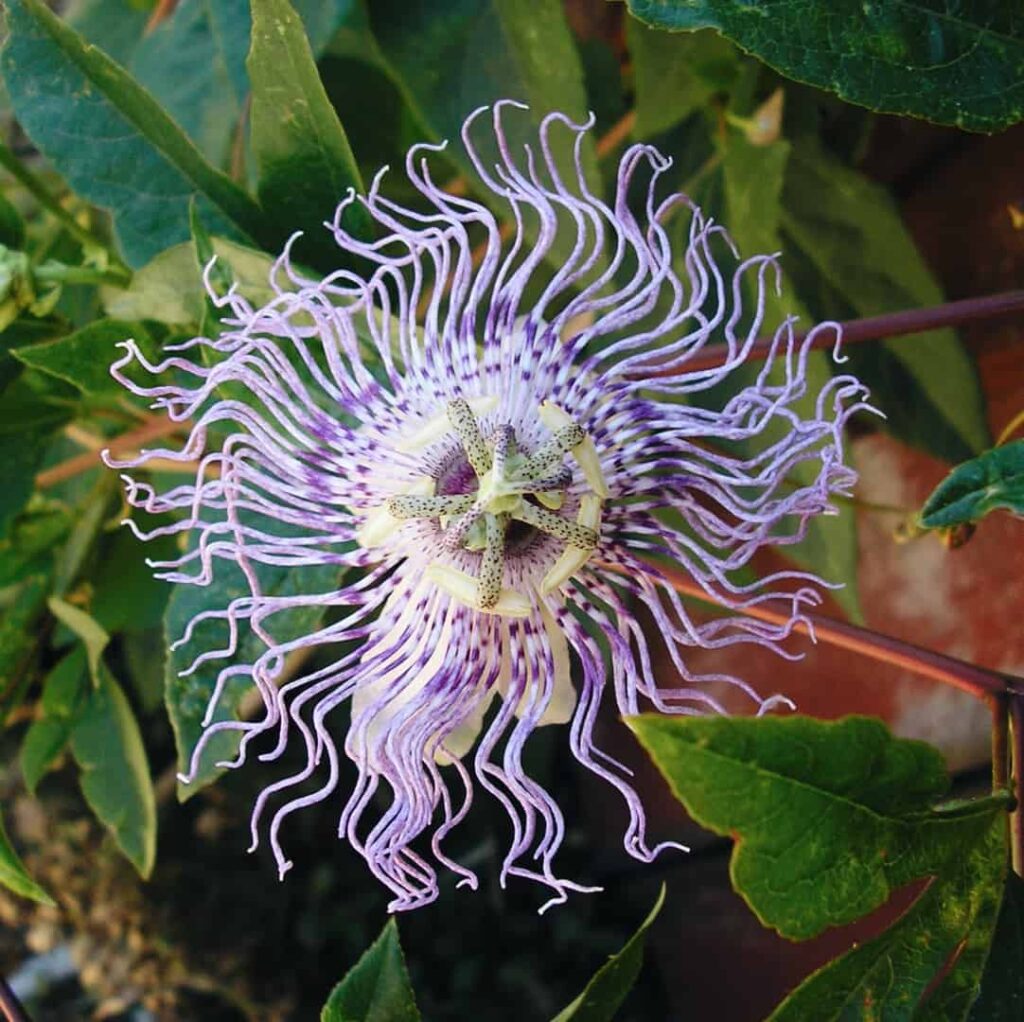
Herbal Remedies for the Irritable Mind
You’ve got so much on your plate.
The dog is barking. The kid is crying. You just remembered a few more things on your to-do list as your eyes finally close for sleep… winding down feels impossible.
But what are you supposed to do?
The world keeps moving faster and faster, and as you try to keep up, you may find yourself unable to relax, snapping at your loved ones, and feeling agitated.
Feeling irritated is an experience many of us are intimately familiar with; especially in the society we live in that demands so much from the nervous system.
Whether you experience irritability expressing itself as sleepless nights, a shorter temper, or feeling unable to settle down enough to relax, there’s a myriad of herbs you can use to help strengthen your nervous system, recalibrate your stress response, and reclaim a sense of calm.
Because the state of irritability does not develop overnight, the first step in balancing this state is in understanding the stress response, how it leads to irritability, and the role that the HPA axis plays in all of this.
HPA Axis 101
The hypothalamic-pituitary-adrenal axis, or HPA axis for short, describes the interaction that occurs between the hypothalamus, pituitary gland, and adrenal glands. This is an aspect of what we might refer to as our “endocrine core.”
The main function of the HPA axis is in regulating your stress response. To illustrate, when something stressful happens to you, your sympathetic nervous system secretes epinephrine and norepinephrine, both of which trigger the “fight or flight” response. Moments later, the HPA axis is stimulated and secretes corticotropin-releasing hormones in the bloodstream, which encourages stronger physiological effects such as an elevated heart rate. In addition, it stimulates your pituitary gland to release the adrenocorticotropic hormone, which binds to receptors located on the surface of the adrenal cortices, thus, resulting in your adrenal glands producing and secreting cortisol.
Although cortisol plays a role in health and functionally ensures survival, excess cortisol production suppresses your immune health and digestive functioning. Moreover, it can leave you feeling a sense of chronic anxiety, stress, or dread.
If your cortisol levels remain high for prolonged amounts of time, it can lead to nervous system exhaustion and endocrine fatigue; both of which lead to irritability.
HPA burnout results from unhealthy lifestyle choices and from “burning the candle from both ends.” While herbalism can contribute towards your sense of rejuvenation and wellbeing, it works best when combined with a larger holistic approach that includes other nourishing habits, such as improving sleep quality, eating a nutritious diet, and meditating.
With this approach, you can regulate HPA axis functioning and restore the nervous system to a state of calm and relaxation.
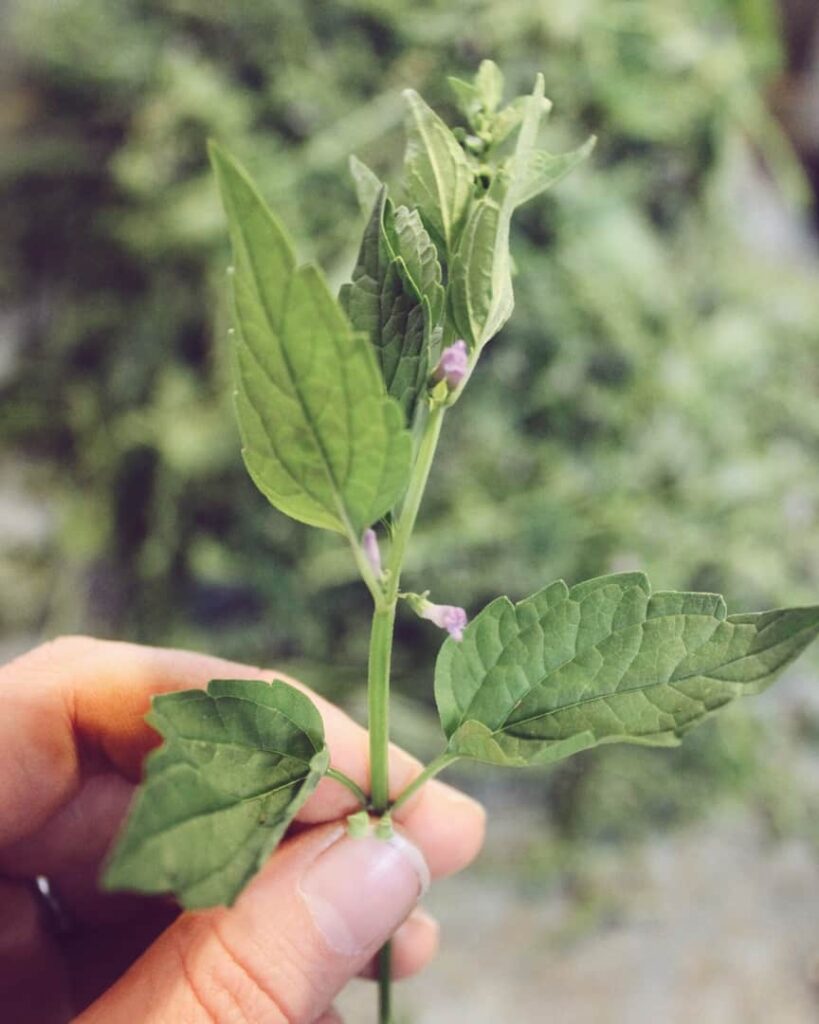
Nervine Trophorestoratives to The Rescue
There are three main categories of nervines in herbalism: Nervine trophorestoratives, nervine sedatives, and nervine hypnotics.
Nervine trophorestoratives nourish and restore the nervous system tissues. With their gentle and cumulative effects, these herbs assist in reducing the frequency and intensity of nervousness, irritability, and burnout.
Nervine sedatives can assist you in falling asleep, but are often mild in nature and can be used throughout the day to encourage relaxation and feelings of wellbeing. On the stronger side, nervine hypnotics, such as Kava (Kava kava) can be used for stronger effects or to induce a sense of euphoria when taken in larger doses.
Although many herbs tend to the health of the nervous system, nervine trophorestoratives are phenomenal to work with as they assist in balancing the energetics of the nervous system. For example, you can use cooling herbs, such as Skullcap (Scutellaria lateriflora) to relieve heat, St. John’s Wort (Hypericum perforatum) to infuse warmth, or herbs with a neutral temperature, such as Milky Oats (Avena sativa).
Moreover, many of these herbs possess a toning quality, which means that the longer you take them, the stronger you feel their effects. Rather than taking a nervine hypnotic strong to temporarily alleviate your state of distress (a practice that can be helpful in acute cases), nervine trophorestoratives work slowly, subtly, and deeply to restore your nervous system to strong health.
Even though their effects are often more subtle than nervine hypnotics, nervine trophorestoratives leave a long-lasting impression on your nervous system and support common symptoms associated with HPA burnout, such as fatigue, anxiety, depression, and stress.
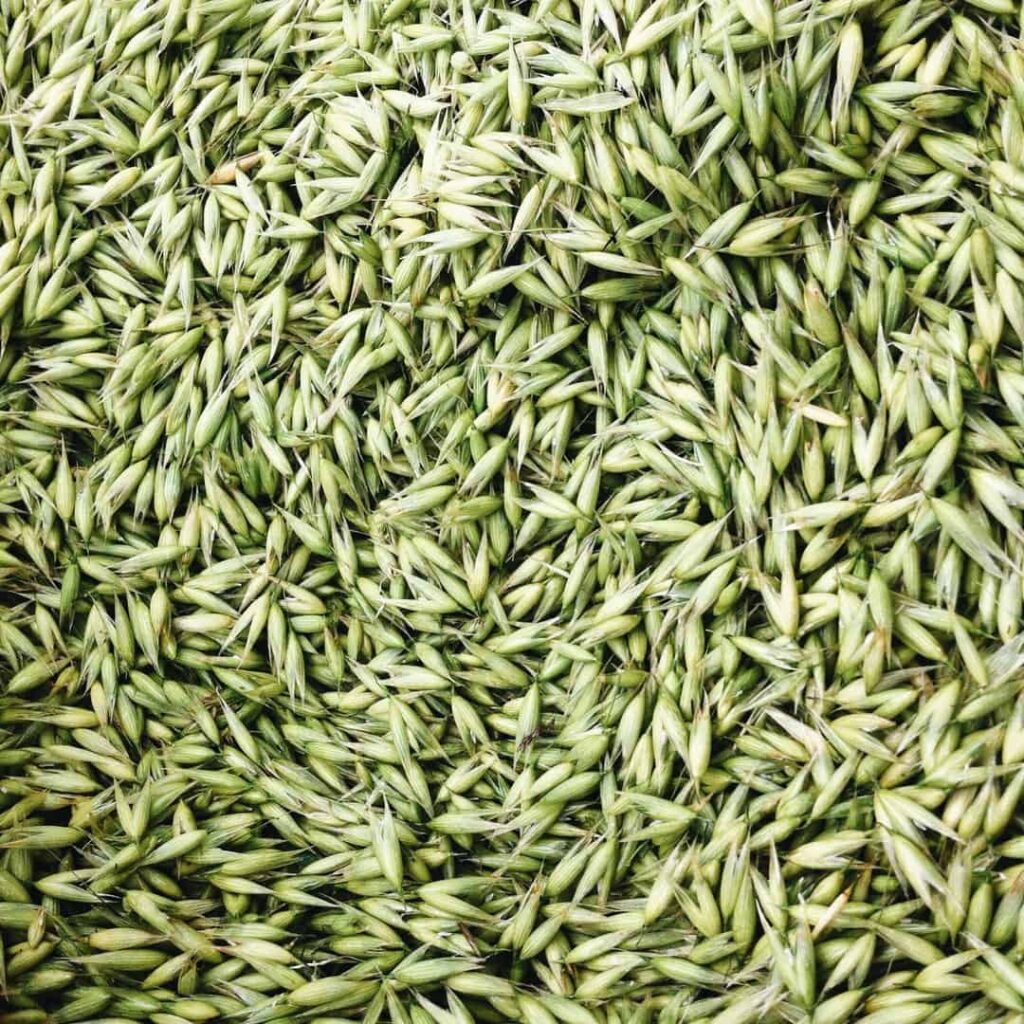
Materia Medica
Milky Oat seed (Avena sativa)
One of my favorite nervine trophorestoratives to work with is Milky Oats. This herb tones and nourishes the entire structure of the nervous system, making it one of the best remedies for strengthening the nervous system, especially when under stress. It’s an excellent remedy for people who feel on edge, hypervigilant or burnt out. Although very nutritive as an infusion, its trophorestorative qualities are best expressed in tincture form. If using capsules, be sure that the herb has been harvested in its milky stage of development, so the constituents from latex are present.
Skullcap (Scutellaria lateriflora)
A grounding nervine, Skullcap eases nervous tremors, twitches, restless movements, tics, and muscle spasms stemming from stress. If you experience irritation culminating with fidgety habits, such as nail biting or skin picking, this is a great remedy to try. Skullcap assists in reducing sensitivity to stimuli and soothes the central nervous system. To feel its sedating effects, boil water and let it sit for a few minutes to cool before pouring it over the herb. For its trophorestorative actions, Skullcap in tincture form is best.
St. John’s Wort (Hypericum perforatum)
With its constituent hyperforin, St. John’s Wort encourages calming neurotransmitters, such as dopamine, serotonin, and gamma-aminobutyric (GABA) to persist for longer amounts of time in the body. As a result, this herb is calming, reduces irritability, and diffuses melancholy.
Slightly warming, consider using this herb in colder months when a sense of warmth might be more balancing than a cooling remedy. Because St. John’s Wort works through the cytochrome P450 liver detoxification pathways, it affects the metabolism of many drugs and is contraindicated with many prescription medications.
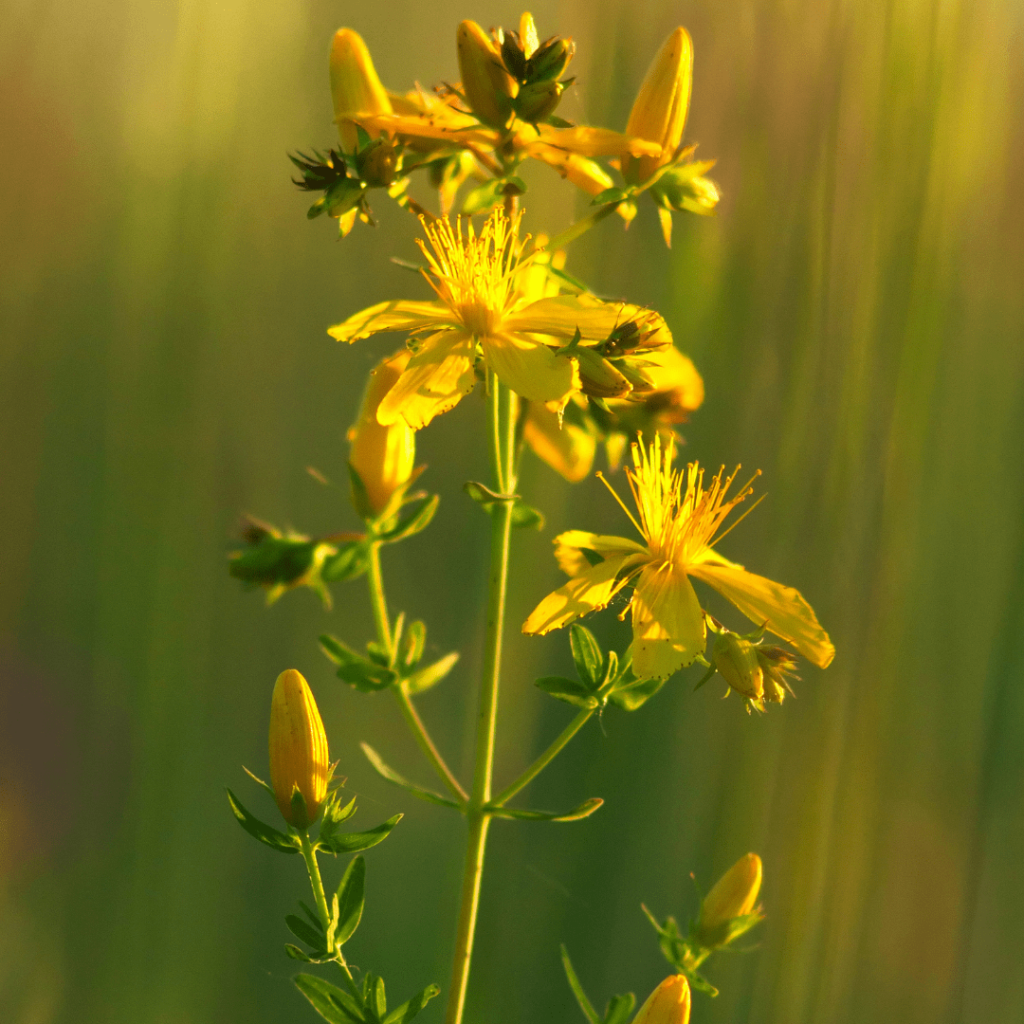
Ashwagandha (Withania somnifera)
Ashwagandha is both a nervine trophorestorative and an adaptogen. With its dual quality, this assists in strengthening a fatigued nervous system and endocrine system. Traditionally classified in Ayurveda as a rasayana plant, Ashwagandha is a rejuvenating tonic that assists in rebuilding, restoring, and replenishing the constitution of those who often feel weak, deficient, and exhausted.
Ashwagandha is an herb that is best taken over a long period. A traditional method for administering this herb is by lightly simmering the powder with milk over the stove, sweetening it with honey, and enjoyed as an herbal “latte” of sorts.
Lion’s Mane mushroom (Hericium erinaceus)
Rich in protein, carbohydrates, fiber, fats, amino acids, and many vitamins and minerals, Lion’s Mane is a nutrient-dense mushroom that nourishes the nervous system. Lion’s Mane encourages healthy nerve cell growth and rebuilds the myelin sheath, which protects the nerve cells from damage. This mushroom pairs well with other herbs and can be used in capsule form, a decoction, or taken in the form of a dual extract for best results.
Blue vervain (Verbena hastata)
A very bitter and cooling nervine, Blue Vervain is indicated for the Type-A personality, as well as for those who have high standards of themselves and others, exhibit perfectionist qualities, and experience difficulty letting go of the workday.
Blue Vervain assists in “taking off the edge” when you’re feeling irritated, as well as reducing a sense of austerity you might carry throughout your day.
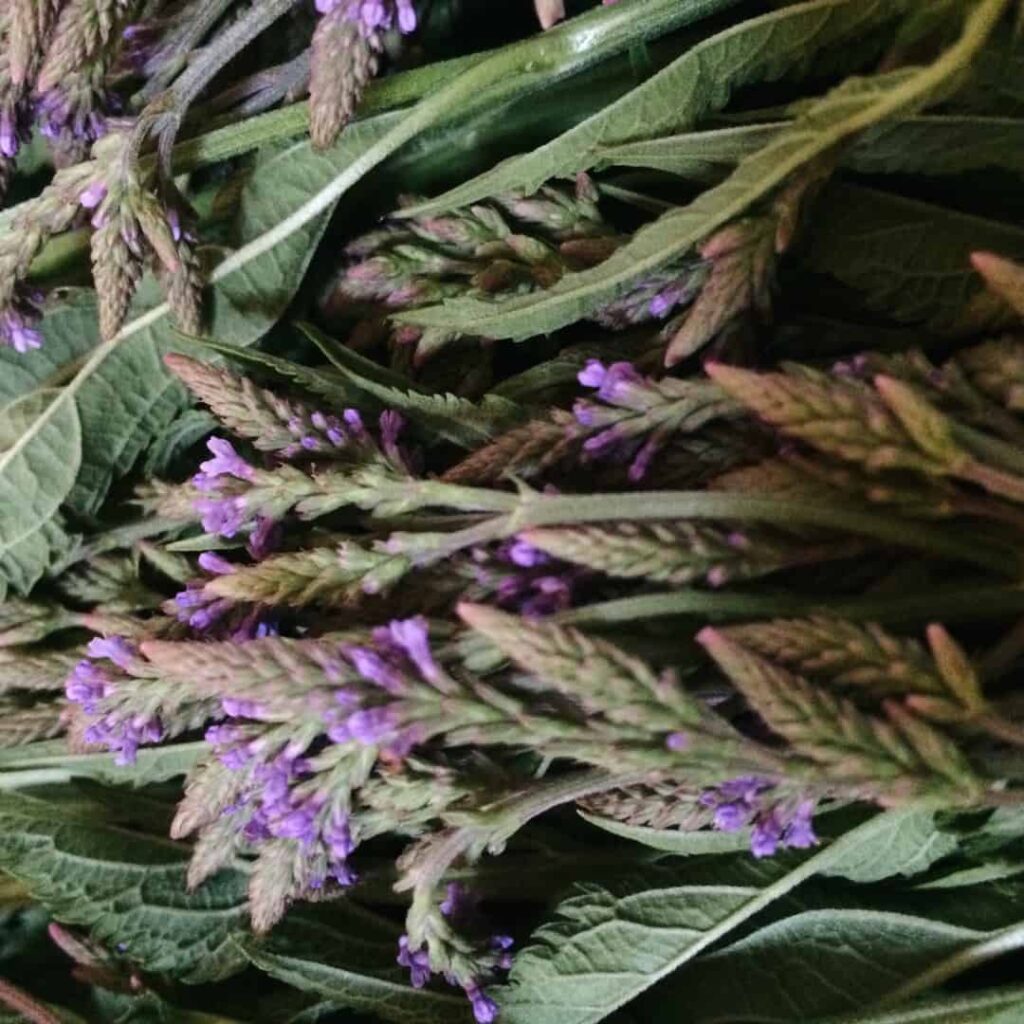
Kava-Kava (Piper methysticum)
With its strong relaxant and euphoric qualities when taken in moderate doses, Kava can be a great ally for people who tend to use alcohol or cannabis to relax. Particularly helpful for irritability and tension in the context of social environments, Kava helps you to loosen up and relax.
When taken in large quantities for prolonged periods, this herb can tax on the liver and result in Kava-induced dermatitis or rash. Although this herb may not be suitable for daily use depending on your constitution and liver health, it can be indispensable in acute moments of irritability.
Hops (Humulus lupulus)
Bitter and cooling, Hops assists in clearing heat from the body, calms the mind, stabilizes the nerves, encourages sound sleep, and reduces anxiety. A strong remedy, this herb is a fantastic alternative to Valerian, which is more heating in nature. Because Hops tastes so bitter, many folks prefer to take it as a tincture rather than an infusion. I usually like to use Hops for people that prefer beer to calm themselves down, as they already seem to have an affinity for the effects of Hops.
Passionflower (Passiflora incarnata)
Neutral to cool in temperature, Passionflower works well as an infusion or tincture. With its sedative and soothing properties, this herb eases general anxiety, mood swings, nervousness, restlessness, and irritability that culminates with twitches or repetitive thinking.
While some of these herbs possess trophorestorative properties, others are more sedative in nature. This list illustrates the difference between them:
Excess Heat and the Case for Capsules
In Ayurveda, irritability, perfectionism, and anger are considered expressions of excess heat, otherwise known as pitta. Furthermore, according to Traditional Chinese Medicine, anger and frustration are classified as a classic liver pattern. Therefore, it’s good to avoid herbs or delivery methods that are overtly heating, increase pitta, and tax the liver, as these may over time be aggravating.
Indeed, frustration, anger, and irritability are classically attributed to a pattern referred to as “liver fire rising” in Chinese Medicine. This pattern looks like an excess of heat accumulating in a liver that is blocked and unable to distribute that heat throughout the organism. As the heat builds and builds it suddenly releases and just like fire, that heat goes up. This is where we can see intense headaches or migraines, a red flushed face, tension in the neck and shoulders, and bursts of anger, frustration, and irritability. In Western herbalism we would refer to this as the heat/excitation tissue state and in medical astrology, an excess of Mars.
For example, some of the best herbs to work with when decreasing irritability are bitter nervine trophorestoratives, which are cooling, balance excess pitta, and calm the liver. As we’ve seen, Skullcap (Scutellaria lateriflora) is a perfect example of this.
Although tinctures possess many positive qualities, they may not be the best option to use when taking herbs for irritability as their alcohol content may contribute to a pre-existing pitta or liver imbalance. Therefore, capsules make a fantastic alcohol-free and convenient alternative. Infusions and decoctions are good options as well and offer the benefit of tasting the herb you’re working with.
If you choose capsules, the best way to ensure medicinal-strength potency is by preparing them yourselves. To do so, buy the herbs you need and powder them using a coffee grinding or other powdering device. Once fine, fill the empty capsules with the powder, allowing a bit of it to settle on the outside of the capsules, so you taste the flavor of the medicinal plant you’re working with when you take them.
If making capsules sounds like too much work, you can purchase pre-made ones. However, a few words of advice on this:
- Find capsules made by a credible herb company rather than a large supplement conglomerate.
- Buy ones made from organically grown herbs.
- Break up a capsule and shake the powder around in the jar to disperse the powder, thus ensuring that you taste the herb each time you swallow a capsule.
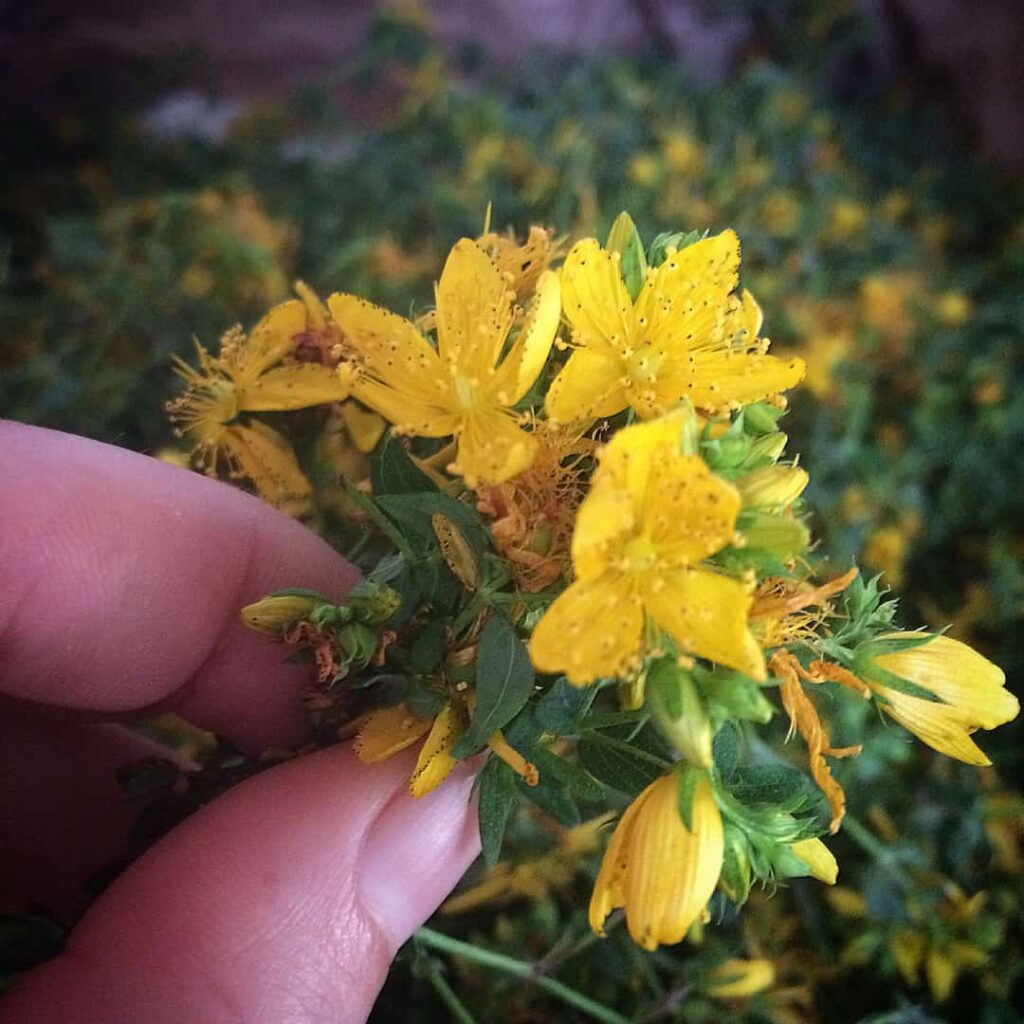
On Lifestyle
If you experience irritation often, there is likely a web of factors that contribute to this state. Although it might be tempting to reach for an herb every time you feel irritated, doing so without addressing the root cause will deem the remedy a mere band-aid.
When you have time alone, try excavating for information that might illuminate why you feel irritated so often. For example, what do your diet, alcohol intake, and sleeping schedule look like? A poor diet, consuming foods you are intolerant or sensitive to, high alcohol intake, and poor sleep all contribute towards irritability and should be addressed first and foremost.
Furthermore, it’s helpful to practice inquiry, asking yourself questions such as:
- When did I feel this way for the first time?
- What did my habits look like when I felt the most ease in my life?
- What am I doing now that is contributing or taking away from feelings of peace?
- What is one thing I can do to increase my feelings of calm today?
- When do I feel particularly irritable, and what are the conditions that precede it?
It’s true, the world is filled with technicolor stimuli that demand your attention wherever you look. With the constant ebb and flow of changes, it’s more important than ever to support your nervous system with a multi-faceted approach.
By consuming a nourishing diet, living a balanced lifestyle, practicing inquiry, and taking herbs that support, tone, and nourish your nervous system, you’re well on your way to a new chapter of your life- one where you feel cool, calm, and collected.


